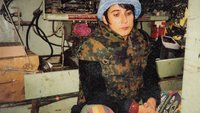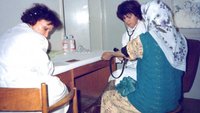Monika Hauser on the 30th anniversary of the Bosnian War: “Another type of politics is needed.”

Thirty years ago, the Bosnian War started. At the time, you set off for the warzone. What motivated you to do that?
The trigger for me was reading about the mass rapes. It wasn’t just the facts of the rapes, but the way they were being reported: the women were being instrumentalised by the media, but nobody seemed to be willing to do anything for them. I couldn’t accept that. I looked around for like-minded people and set off for the warzone. There I met female specialists and together we established the first therapy centre in Zenica. More centres were set up in the following years.
Bosnia and Herzegovina has been largely ignored by the German public in recent years, but in March 2022, Germany’s Minister for Foreign Affairs visited the country. How do you judge this interest?
Ms Baerbock is taking up a responsibility that has been neglected for decades. Promises were made after the wars, but the country is still a long way from EU membership and is one of the poorest in Europe. The failure to deal with the country’s history also wears many people down: How much guilt, how much unprocessed trauma, and how many lies can a society bear? Another type of politics is needed. And it is important to strengthen civil society initiatives, including an inter-ethnic and feminist approach to working through the country’s past. This is necessary for the spiral of hate and violence to be broken.
Which projects is medica mondiale supporting in the region?
medica mondiale is helping local women’s rights organisations, who provide psychosocial support, legal advice and economic empowerment to women and girls affected by violence. One of them is still Medica Zenica, which has been doing great and important work for 30 years. These organisations have achieved a great deal in these three decades. In Kosovo and Bosnia and Herzegovina they fought for a new law that guarantees survivors the right to a monthly pension. Sexualised wartime violence is still a long way from losing its ‘taboo’ status, but at least the debate is now more public. In future we want to increase the networking in this work. Since 2021, seven of our partner organisations have been working together in a regional project on dealing with the past in a feminist, inter-ethnic way. A strong, well-connected women’s rights movement is an important element to ensure trauma can be processed and peace achieved in the region!
What can supporters of medica mondiale do to help women’s rights in the region?
A first and important step is to devote some attention to the region. medica mondiale reports on the projects frequently, and many supporters then share these reports in social media. Of course, we still need donations. When a region is not often the focus of public attention, it becomes more difficult to raise funds for the work there. But efforts to support survivors and peace-building in the region need long-term, sustained energy and commitment.
As we speak there is a new war in Europe. How do our partner organisations in south-eastern Europe perceive the attack by Russia on Ukraine?
In Bosnia and Herzegovina, the national tensions have clearly increased in the past year. Fears of secession are growing, in part triggered by Russia’s attack on Ukraine. So I’m even more moved by the solidarity being demonstrated by our partners with activists and women in Ukraine. Many of them still remember the war and know how important it is to demonstrate strong, cross-border feminist solidarity.
Please support this work in Bosnia and Herzegovina and support us with a donation!
Related topics
Read more about our work in Southeastern Europe
Video: Women's rights activists show their solidarity with women in Ukraine






